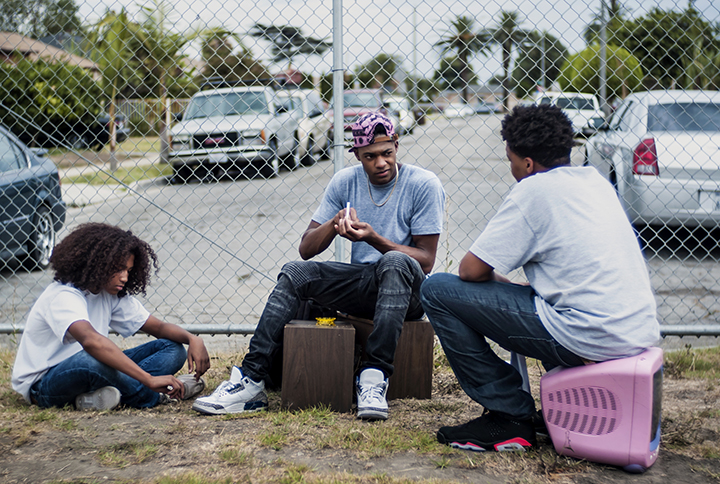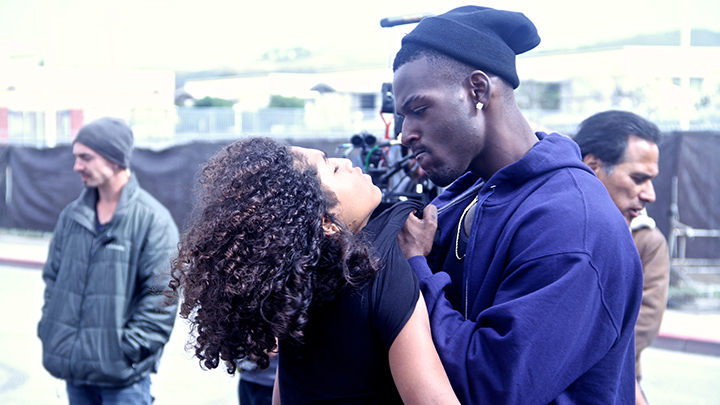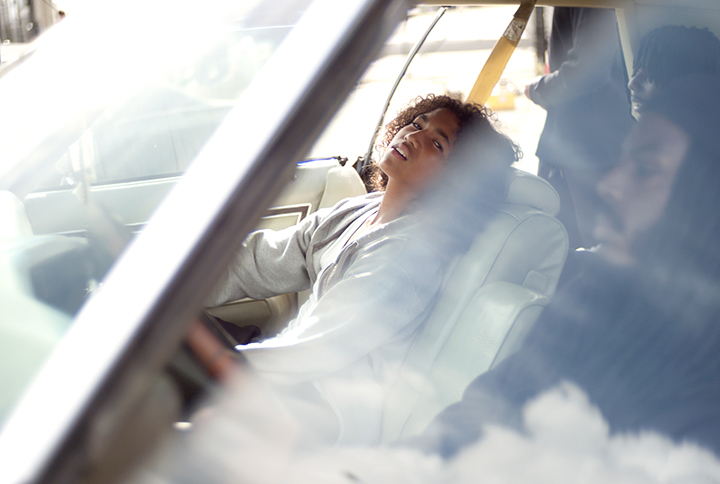Justin Tipping’s debut feature-length film, Kicks (opening Sept. 9), follows Richmond teenager Brandon on an East Bay odyssey to recover his new, and only, pair of shoes. It’s a coming-of-age movie. But the choices Brandon makes on screen reinforce the idea that a violent solution to conflict is the only solution. To become a man in Kicks, aggression is a rite of passage.
Kicks is the third in a recent spate of debut features set in Oakland and Richmond neighborhoods. Like Ryan Coogler (Fruitvale Station) and Jason Zeldes (Romeo is Bleeding), Tipping demonstrates a precise sense of place, as well as a personal intimacy with the people of the East Bay. All three of these films are energized by the Black Lives Matter movement, which offers a shorthand to group them together. But it is in response to themes of violence that the films differ greatly, both in terms of narrative style and the disparate emotional responses each story evokes.
Kicks draws from Tipping’s own experience growing up on the El Cerrito/Richmond border. Like its predecessors, Kicks captures the look and feel of specific East Bay neighborhoods by examining their geographical and emotional microclimates. “Where I grew up, it was two blocks that way, we cannot go. And two blocks that way was a whole other world,” Tipping says. “The one intersection you had was public school. There you met so many people from all walks of life.”

Brandon is shorter than other kids his age, and there are many predators. Tipping too was once easy prey. Of the event that inspired Kicks, he says, “It was the first time I had saved up and bought my first pair of Nikes. They were all white, coke white, as they say. You have to keep them clean. That’s what singled me out. There was about ten kids that piled out of two cars. First thing I heard was, ‘He’s got the Prestos.’ I got stomped out and beat down.” And so does Brandon.
Unlike Brandon, Tipping didn’t seek revenge. The film, however, depicts a punishing sense of physical violence. When an uncle offers him a gun, Brandon momentarily pauses then reaches for it. Kicks sidesteps nuance in favor of action. Brandon’s frustrations overrule his common sense, and chaos ensues.



